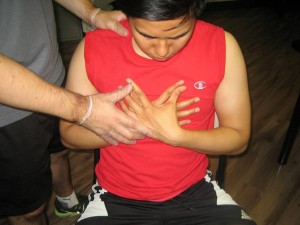A pet allergy is an immune reaction to animal dander such as skin flakes, urine, saliva or feces. Generally, animal fur or hair traps dust, pollen, mold and other allergens. When breathing in dander or exposed to the droppings or saliva, the immune system of the body releases histamine and other chemicals to eliminate the allergen.
Furthermore, histamine causes inflammation of the nose and airways and the chemicals can cause symptoms of allergy such as watery eyes, runny nose, sneezing and symptoms of asthma such as coughing or wheezing. In addition, the allergens that land on the skin will cause hives or rashes.
Symptoms of pet allergy
- At first, nasal congestion
- Sneezing

Whistling or wheezing sound can be heard when breathing. - Runny nose
- Itchy nose, roof of the mouth or throat
- Itchy, red and watery eyes
- Frequent awakening
- In addition, facial pressure and pain
- Cough
- Postnasal drip
- Frequent upward rubbing of the nose
- Swelling, blue-colored skin under the eyes
- Breathing difficulties
- Chest pain or tightness
- Whistling or wheezing sound can be heard when breathing
- Development of hives and eczema
- Lastly, itchiness of the skin
Treatment
- Take the prescribed antihistamine tablets or syrup to lessen the allergic reaction by preventing the action of histamine.
- Use the prescribed nasal sprays or drops with sodium cromoglicate, corticosteroid or antihistamine to lessen the nasal inflammation and symptoms affecting the nose.
- Use the prescribed eye drops to lessen the inflammation of the eye and symptoms of eye problems.
- Take relievers or bronchodilators which are quick-acting medications that relax the muscles of the airways and relieve shortness of breath
- Take the prescribed anti-inflammatories to lessen the inflammation in the airways. Generally, they should be used regularly for the best results.
- Use the prescribed corticosteroid or steroids to lessen the severity of inflammation within the airways and the tendency to contract. Furthermore, this medication can be inhaled or taken as oral tablets for severe attacks.
- Irrigate the nasal passages using saline water. Generally, it flushes the sinus and prevents irritation due to allergens and for easy breathing. Saline solution is made by mixing a teaspoon of sea salt in a cup of pre-boiled distilled water. Let it cool down and use the solution in irrigating the nasal passages. Tilt the head upwards and pour the solution into one nostril and then let it drain from the other nostril. In addition, repeat the procedure on the opposite nostril.
Tips
- Designate an area in the house as a “pet free zone” to prevent the spread of allergens.
- Use a high-quality air purifier.
- Clean the beds of pets regularly to prevent the accumulation of allergens.
- Dust furniture using wet cloth to prevent stirring up the dander
- Clean curtains, drapes, carpets and rugs regularly using non-toxic products
- Wash the pets at least once a week and cover all litter boxes.
FACT CHECK
https://acaai.org/allergies/types/pet-allergy
https://www.aaaai.org/conditions-and-treatments/allergies/pet-allergy
https://www.mayoclinic.org/diseases-conditions/pet-allergy/symptoms-causes/syc-20352192
